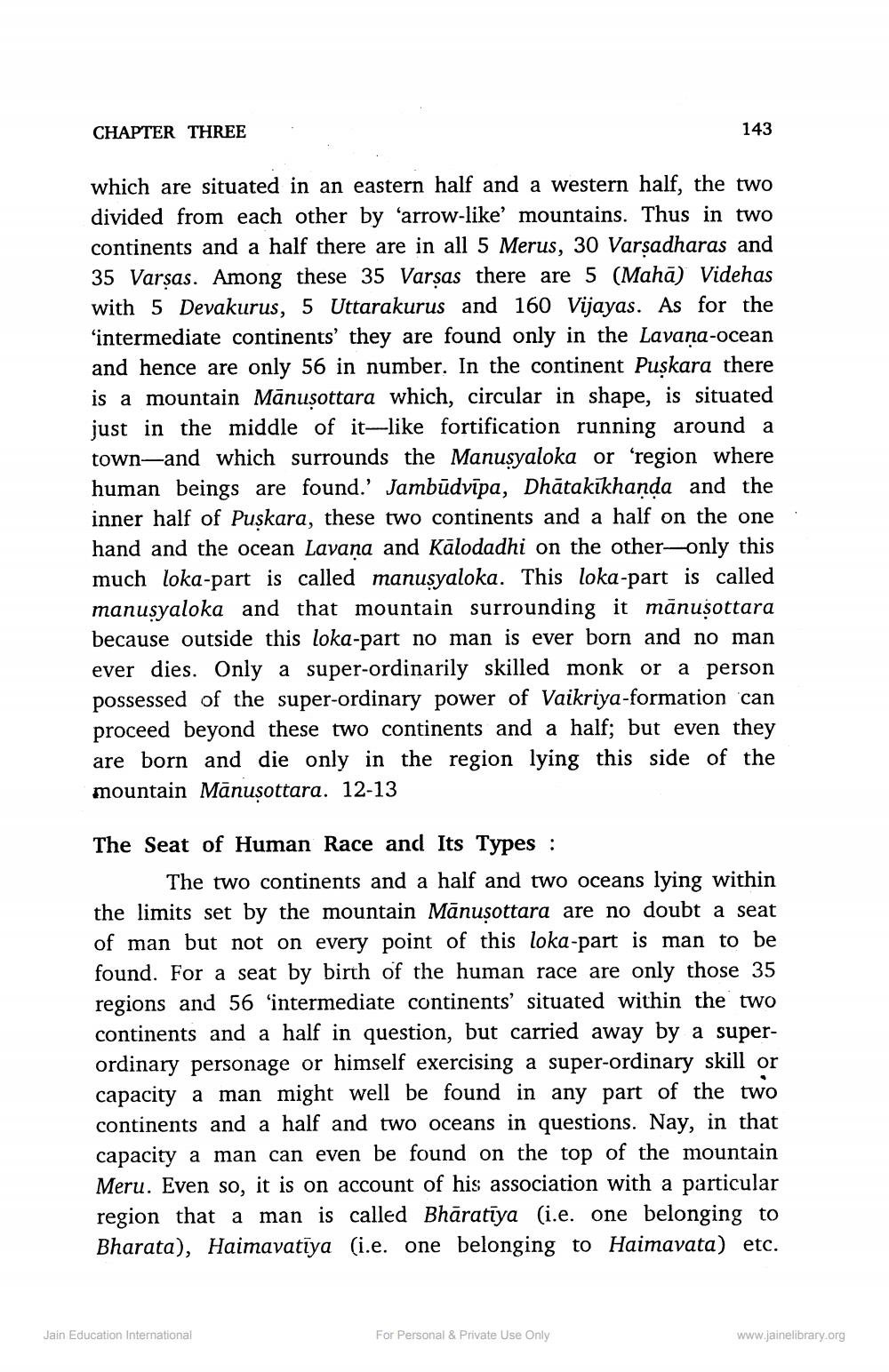________________
CHAPTER THREE
which are situated in an eastern half and a western half, the two divided from each other by 'arrow-like' mountains. Thus in two continents and a half there are in all 5 Merus, 30 Varṣadharas and 35 Varsas. Among these 35 Varṣas there are 5 (Maha) Videhas with 5 Devakurus, 5 Uttarakurus and 160 Vijayas. As for the 'intermediate continents' they are found only in the Lavana-ocean and hence are only 56 in number. In the continent Puskara there is a mountain Mănușottara which, circular in shape, is situated just in the middle of it-like fortification running around a town-and which surrounds the Manusyaloka or 'region where human beings are found.' Jambūdvīpa, Dhātakikhanda and the inner half of Puskara, these two continents and a half on the one hand and the ocean Lavana and Kalodadhi on the other-only this much loka-part is called manusyaloka. This loka-part is called manuṣyaloka and that mountain surrounding it mānuṣottara because outside this loka-part no man is ever born and no man ever dies. Only a super-ordinarily skilled monk or a person possessed of the super-ordinary power of Vaikriya-formation can proceed beyond these two continents and a half; but even they are born and die only in the region lying this side of the mountain Mănușottara. 12-13
143
The Seat of Human Race and Its Types:
The two continents and a half and two oceans lying within the limits set by the mountain Mănușottara are no doubt a seat of man but not on every point of this loka-part is man to be found. For a seat by birth of the human race are only those 35 regions and 56 'intermediate continents' situated within the two continents and a half in question, but carried away by a superordinary personage or himself exercising a super-ordinary skill or capacity a man might well be found in any part of the two continents and a half and two oceans in questions. Nay, in that capacity a man can even be found on the top of the mountain Meru. Even so, it is on account of his association with a particular region that a man is called Bhāratīya (i.e. one belonging to Bharata), Haimavatiya (i.e. one belonging to Haimavata) etc.
Jain Education International
For Personal & Private Use Only
www.jainelibrary.org




